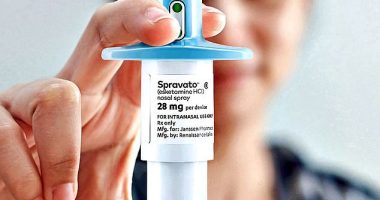Paying obese teens to lose weight is not only works but is cost effective, scientists claim.
Experts found young patients offered financial incentive to slim alongside low calorie meals lost more mass than those who weren’t.
At the end of a yearlong experiment American researchers found children offered the cash reduced their body mass index (BMI) by six per cent more, on average, than those put on a diet alone.
Scientists, from a range of American institutions including the University of Minnesota, paid teens £15 for every 0.5 per cent of bodyweight they shed. The most cash handed out was £550 while the average was £260.
They claim their results show the approach is effective and point out the incentives offered amounted to far less than the price of treating obesity.


Scientists, from a range of American institutions including the University of Minnesota, paid teens up to $700 (£550) to lose weight, though the average actually handed out was $330 (£260). Stock image


Over a million children had their height and weight measured under the National Child Measurement Programme (NCMP). Nationally, the rate among children in Year 6 stands at over a third, despite having fallen slightly since Covid began


Among Year 6 pupils, national obesity fell from 23.4 per cent in 2021/22 to 22.7 per cent. Meanwhile, the proportion of children deemed either overweight or obese also dipped, from 37.8 per cent to 36.6. Both measures are above pre-pandemic levels
Experts tested their theory on 126 teens aged between 13 and 17, spilt roughly equally between boys and girls.
All participants had at least a BMI of 35, meaning they were obese, though the average BMI was 41 which is severely obese.
Teens were split evenly into two groups. One received only meal replacements, amounting to 1,200 calories-a-day, to help them lose weight.
But participants in the other group were also offered £15 gift cards for achieving and continuing to lose weight.
The gift cards were handed out at weigh-ins that were conducted every two months during the study’s duration.
At the end of the year long trial results were compared and on average teens in the gift card cohort had reduced their BMI by an average of 2.4 points — six per cent of their bodyweight.
Not only that but the gift card group were more likely to keep the weight off after the study concluded and didn’t show any signs of eating disorders despite being paid to lose weight.
The approach was cost-effective, the researchers added.
UK estimates have calculated that a patient with a BMI of above 40 costs the NHS about £1,375 to treat per year due to increased health problems, like blood pressure and cancer, they suffer.
Patients with a BMI of 35-40 meanwhile cost the NHS £1,178.
Meanwhile, the most spent on gift cards in the study was £550.


Under the BMI system, a score of 18.5 to 25 is healthy. A score of 25 to 29 counts as overweight, and 30-plus means a person is obese, the stage at which chances of illness rocket
The latest childhood obesity data for England shows one in 10 children are too fat by the time they start primary school, rising to about one in four among Year 6.
An estimated one in five children and teens in the US are considered obese.
Overall, obesity also takes a massive financial toll in the UK, with the resulting health consequences on loss working years, care costs, and price of NHS treatment costing the economy an estimated £100billion per year.
Source: Mail Online







